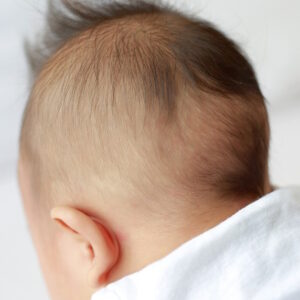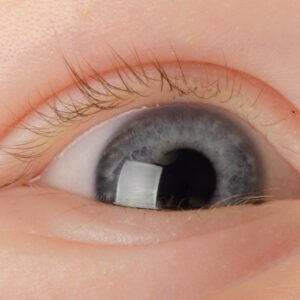Is it normal if a baby is sleepy after vaccination? And should I let her sleep or not?
Here’s what research says and what to do as a parent.

Mom’s Question:
My 4-month-old baby is sleepy after vaccination shots this morning. Is it okay for her to sleep all day? If I do that, will she sleep tonight?? Should I try and wake her up every few hours?
Thanks,
Jennifer
Baby is Sleepy After Vaccination
Is it Normal if My Baby is Sleepy After a Vaccination Shot?
Many babies become very tired after getting their shots and need to sleep. The fact that they are sleepy may actually be a good sign that their immune system is working and starting to respond to the vaccination.
According to research (reference one below), babies tend to sleep between 30-100 minutes extra during the 24 hours after a vaccination shot. Around 1 hour extra was average.
The study concluded:
“If further research confirms the relationship between time of day of vaccine administration, increased sleep duration after immunization, and antibody responses, then our findings suggest that afternoon immunizations should be recommended to facilitate increased sleep in the 24 hours after immunization, regardless of acetaminophen administration.”
Being sleepy is just one of many common side effects of vaccination, and you can read about more side effects here.
What to do as a Parent?
In addition to the fact that the research study cited above actually proposes afternoon immunizations because babies sleep longer after immunization, my own very limited research (my kids, LOL) makes me conclude the same: let her sleep.
Also, research on adults (referenced below) actually backs up that sleep is important after vaccination for the immune response. Whether this means that the best thing you can do is to let your baby sleep after the vaccination shot is, of course, a too strong conclusion, but the two studies together do point toward letting your baby sleep.
If you’re lucky, she’ll have a good night’s sleep. I remember with my daughter; I used to joke with her doctor that I wanted my baby to have shots at least once per week – that was the only time she slept well at night. ;-)
Our youngest wasn’t at all as affected. It is very individual.
Maybe she will wake up at night if she does sleep a lot today, but it’s just one night… Waking her up during the day likely means you have a very cranky, awake baby. I’d let her have her rest.
Let me know how things went!
Paula
More On Babies And Vaccination
- Knot In Baby’s Leg After Vaccine and Other Common Side Effects
- The Vaccination Schedule For Children: All 10 Vaccines Explained
Research References
- Franck L, Gay CL, Lynch M, Lee KA. Infant sleep after immunization: randomized controlled trial of prophylactic acetaminophen. Pediatrics. 2011 Dec;128(6):1100-8. doi: 10.1542/peds.2011-1712. Epub 2011 Nov 28. PMID: 22123869; PMCID: PMC3387894.
- Lange T, Perras B, Fehm HL, Born J. Sleep enhances the human antibody response to hepatitis A vaccination. Psychosom Med. 2003 Sep-Oct;65(5):831-5. doi: 10.1097/01.psy.0000091382.61178.f1. PMID: 14508028.
Find comments below.

Paula Dennholt founded Easy Baby Life in 2006 and has been a passionate parenting and pregnancy writer since then. Her parenting approach and writing are based on studies in cognitive-behavioral models and therapy for children and her experience as a mother and stepmother. Life as a parent has convinced her of how crucial it is to put relationships before rules. She strongly believes in positive parenting and a science-based approach.
Paula cooperates with a team of pediatricians who assist in reviewing and writing articles.






I have 5 month year old twins but 6 weeks early. They get their shots tomorrow. Should I give them Tylenol before and when they wake up in the middle of the night, should I give them some?
Since your babies are just a bit over three months calculated from when they should have been born, I think it would be wise to consult their doctor before giving Tylenol since the general recommendation is to not give acetaminophen (the active component in Tylenol) to babies younger than 3 months.
If you worry about the pain, there are other ways to minimize it, too, at least when the shots are given.
One effective way to reduce the pain is to breastfeed. Breast milk and the comfort of snuggling close to mom have significantly reduced crying during shots. Here is a link to a research study confirming the reduced crying when breastfeeding during immunization injections.
If you don’t breastfeed, research has found that sugar water can actually have a similar effect on babies younger than 12 months.
This is how to make the sugar water:
You boil 2 teaspoons of white sugar in 1 ounce (0.3 dl) of water. (Or probably double that since you have two babies.)
Bring the solution together with an infant Tylenol dropper to the doctor’s office. Before the shots, stir the solution and give your baby two full droppers. Try to get the solution onto your baby’s tongue because he or she needs to taste it for the solution to have an effect.
The pain relief starts after 2 minutes and lasts for about 5-7 minutes.
If, for some reason, the shots are not given within 7 minutes, give your baby another dropper before the shot.
If you place your baby skin-to-skin in your arms, it will also provide extra pain relief.
You can read about the research on sweet solutions for analgesia in infants here. The results are clear and consistent; sugar solutions work well to reduce pain during vaccinations for young babies.
In addition to breast milk and sugar, creams (EMLA or LMX) can effectively minimize pain. Have a chat with your babies’ health nurse today, if you can and want, to see what creams to use and where on their bodies the shots will be given. You can, of course, discuss Tylenol then, too, and if they are in pain later on, for example, at night (if verified to be OK by the nurse).
I hope this helps,
Paula